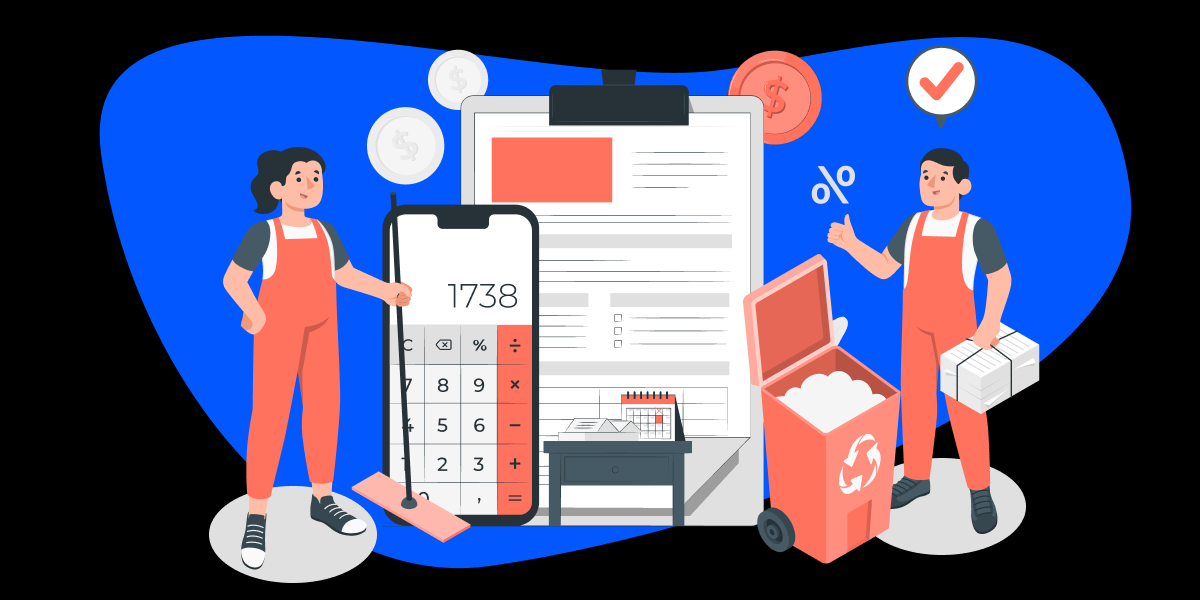Best Way to Accept Credit Cards for Small Business
What is the best way to accept credit cards for smart business? Should you use a POS system or online payment gateway? Find out your best options here!



As of 2018, 54% of consumers prefer to pay using a debit card, 26% prefer to use credit cards, and only 14% prefer cash. This shows a 10% increase in debit cards being a preferred choice over credit cards.
What does this mean for your local small business?
That you need to step your game up when it comes to being flexible with the payments you accept. With the looks of things, you're going to need to find ways to accept plastic transactions.
But there are various ways you can do that -- online and offline.
Which is the best way to accept credit cards for small business?
Let's take a look.
What Are the Different Ways to Accept Credit Cards?
Knowing the best ways to accept credit cards for small business can help you make the best decision for your customers. The ultimate goal -- to add convenience, flexibility, and security.
The two most common ways of accepting credit cards are online or offline.
Most businesses accept offline forms of credit card payments. This involves the use of terminals and POS (point of sale) equipment customers use to swipe their cards.
This communicates with the credit card issuer for authorization and then your bank for the deposit.
Then there's the online method, which is growing in popularity. This requires no equipment -- just a smartphone, tablet, or computer with an internet connection.
Your customers can type in their credit card details or use what's known as an eWallet. Chances are, you've used one before (or know someone who has).
Examples of eWallets include Google Pay and Apple Pay. They contain the credit card details, so consumers don't have to display their financial data. They just log into the eWallet and submit their payment. The eWallet stores all of the financial data without exposing it.

Pros and Cons of Offline Credit Card Processing
You don't want to fall into the trap of offering offline credit card processing to customers. This is the typical method local businesses use because it's traditional. It's what you're used to seeing when you walk into a store or other place of business.
And while it does offer the convenience of swiping a card (and you can see the person making the payment), it comes with shortcomings and pitfalls.
For instance, you're limited to where you are. Some terminals are plugged into your ethernet and aren't mobile whatsoever. If you operate a mobile business, then this becomes problematic.
Then there's the issue with theft. You'll have to hope the transaction is approved and sent to your bank. Normally, the funds aren't taken immediately, which means there's a chance you won't receive your funds.
Because of this, offline credit card processing isn't the best way to accept credit cards for small business.
The Pros and Cons of Online Credit Card Processing
When you're a local business owner, convenience is what drives traffic and sales. This is one of the reasons many believe online is the best way to accept credit cards for small business.
To start, it allows your customers to choose how they want to pay you. With online credit card processing, you can accept credit and debit cards, as well as eWallet transactions.
This comes in handy when you're a mobile business and want to charge customers without them revealing their financial details. It also hastens transactions by getting them approved right away. You can get funds into your account within one day (when using the right payment gateway).
Now, it's important to note that fraud and identity theft are still possible, so it's good to do these transactions in person. Be sure you're with a payment processor that offers fraud protection services.

Choosing the Best Way to Accept Credit Cards for Small Business
Seeing the pros and cons of online and offline credit card processing makes it easier to choose one. For most, online is the best way to accept credit cards for small business.
If you agree, then the next question now is:
Which payment processor should you choose?
You want to base your decision on what the processor offers. And you want to find a payment processor that won't overcharge you with hidden fees and non-transactional costs.
Here's a list of the features you want to look for:
- Doesn't require any credit card terminals or equipment
- Allows payment processing using a mobile device
- Offers a dashboard where you can view all of your customers and their transactions
- Accepts multiple forms of payment including all major credit cards and eWallets
- Allows you to accept payments in-person and via SMS
- Charges a nominal fee per transaction
- Offers next-day funding
- 100% secure with high-grade encryption and payment technology
- Offers fraud protection
Now, where can you find a platform like this? contactless payment is one worth checking out! It comes with all the bells and whistles, plus your customers can schedule (and pay for) bookings online.
Offer Your Customers the Convenience of Online Payment Processing
It seems every aspect of our lives is shifting towards digital. Our homes, cars, personal devices, and businesses are in on this trend. It's up to you to keep up with the pace.
If you're interested in learning why online is the best way to accept credit cards for small business, then download our free fact sheet on payment processing!

%20(1)%20(1).png?width=340&name=Group%2012%20(2)%20(1)%20(1).png)



